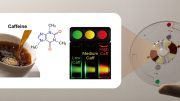
If you’re anything like the vast majority of Americans, you’ve probably consumed caffeine nearly every day of your adult life.
The question is, do you do it because you like it, or because you need it?
In a March 2022 survey carried out by the International Food Information Council (IFIC), respondents over the age of 65 generally said they drink caffeinated beverages because they enjoy the flavor, while under-45s were more likely to report taking caffeine solely for its well-known benefits as a stimulant.[1]
But these benefits are part of a trade-off that might not be worth it if you don’t actually care for the taste — or perhaps even if you do.
Reasons to Avoid Caffeine
Although caffeine can certainly lift your energy levels and improve physical and mental performance, it can also leave you feeling jittery and — once the infamous “caffeine crash” kicks in — seriously fatigued.
Insomnia, high blood pressure, heart palpitations, headaches, dizziness, gastrointestinal distress, and anxiety are among caffeine’s most common side effects, and daily use also comes with the risk of building up a tolerance (so you need more and more to feel the same energizing effect) or becoming addicted, which can mean suffering withdrawal symptoms, too.
Fortunately, some fantastic, all-natural alternatives to caffeine can be found in today’s market that can provide you with a similar energy and performance boost, but in a much healthier way — so no jitters, no crash, and no getting hooked.
Here are three of the very best, with a rundown of the science behind them:
Zynamite
Developed by Spanish nutraceutical company Nektium and launched commercially in 2018, Zynamite is a patented extract of Mangifera indica (mango tree) leaf that wowed judges at the 2018 NutraIngredients Awards, where it won Ingredient of the Year in the Sports Nutrition category — with its scientifically proven “ability to replace caffeine without any of the typical side-effects.”[2]
Unlike other mango leaf extracts, Zynamite is standardized to contain at least 60% mangiferin, which is able to cross the blood-brain barrier and upregulate dopamine in a way similar to caffeine but achieves this without blocking the adenosine receptors[3] — the mechanism responsible for both the benefits and side effects of caffeine.
Instead, mangiferin inhibits the catechol-O-methyltransferase (COMT) enzyme that breaks down dopamine in the prefrontal cortex,[4] thereby boosting dopamine levels without causing the build-up of adenosine that typically results in caffeine crash.[5]
A 2020 study led by professor David Kennedy, director of the Brain, Performance & Nutrition Center at Northumbria University in the UK, found that a single dose of Zynamite in healthy adults resulted in significant improvements across a wide range of brain functions for up to 6 hours — cognitive benefits that the study’s authors noted were “broader and longer lasting than those that would be expected after caffeine.”[6]
Earlier clinical studies also found that single doses of Zynamite in combination with common plant flavonoids quercetin or luteolin can enhance sports performance by increasing muscle oxygen extraction and brain oxygenation[7,8] and accelerating muscle recovery during exercise.[9]
EnXtra
Another award-winning caffeine substitute is EnXtra, a proprietary extract of Alpinia galanga (galangal — a herb from the ginger family) developed by Mumbai-based ENovate Biolife that took home trophies for Ingredient of the Year in the Sports Nutrition and Cognitive Function categories at the 2019 NutraIngredients Awards and the 2021 NutraIngredients-USA Awards, respectively.[10]
EnXtra works in much the same way as caffeine, suppressing adenosine receptors and inhibiting dopamine reuptake, but with one crucial difference: whereas caffeine is a vasoconstrictor that increases blood pressure and reduces cerebral blood flow — the primary cause of caffeine’s unpleasant cardiovascular side effects, colloquially known as jitters — EnXtra has no adverse effect on blood circulation or heart rate.[11]
In fact, even in the areas where caffeine excels as a stimulant — boosting mental alertness, energy, focus, and attention — EnXtra outperforms its rival, with the Alpinia galanga extract’s no fewer than eight known dopaminergic bio compounds[12] working together synergistically to deliver superior and longer-lasting neurostimulator benefits.
Recent studies have found that EnXtra consistently enhanced alertness[13] and focused attention[14] over five hours, whereas caffeine temporarily improved scores in these areas before causing a crash at around the three-hour mark.
Unlike caffeine, which typically exhibits a “ceiling effect,” whereby a tolerance is quickly built up and the chemical ceases to provide further benefits after even a short period of consistent (i.e. daily) light-to-moderate use, EnXtra “displayed an acute and consistent improvement in alertness and did not decline throughout the 180 days of usage,” according to a long-term safety and efficacy study conducted in 2019.[11]
The results of the safety study also showed that there are no withdrawal symptoms associated with abstinence from EnXtra after an extended period of twice-daily consumption — again, unlike caffeine.
TeaCrine
Marketed as “a patented compound that delivers energy, mental clarity, and improved motivation and mood,”[15] TeaCrine was developed by California-based nutraceutical firm Compound Solutions and made its commercial debut in 2015.
TeaCrine is structurally analogous to caffeine, and therefore acts via the same dopaminergic and adenosinergic pathways, but has a half-life of around 20 hours — a lot longer than caffeine’s approximate five-hour half-life[16] — and so remains active within the bloodstream for much longer.
The adenosinergic activity of TeaCrine compared to caffeine is also slightly different; while caffeine blocks adenosine receptors completely — which leads to a build-up of the chemical sleep signals that eventually overwhelm the brain, causing the familiar caffeine crash effect — TeaCrine is much less antagonistic, thereby preventing a sudden crash.[17]
An early pilot study found that TeaCrine sharply reduced fatigue and anxiety while significantly increasing energy, motivation, libido, and concentration, over the course of six hours after a single dose,[18] thus demonstrating that the effects are much longer-lasting than those of caffeine.
A later safety study also found that TeaCrine has no observable impact on heart rate or blood pressure, may actually reduce cholesterol levels, and — crucially, unlike caffeine — is entirely non-habituating.[19]
Final Thoughts
Many people love caffeinated drinks, but if you’re one of the growing number of people who only consume them for their health and performance benefits, the side effects of caffeine probably aren’t worth it.
Even if you do enjoy caffeine beverages like coffee or energy drinks, you might still be keen to find a less addicting alternative, one that doesn’t put your long-term health at risk.
Fortunately, the caffeine substitute market is exploding right now, and nutraceutical products such as Zynamite, EnXtra, and TeaCrine have real science to back up their claims of effectiveness.
With these products’ clinically proven ability to boost energy and focus — just like caffeine, and in many cases even better than caffeine — without causing jitters, crashes, tolerance, or addiction, might the world’s most popular stimulant soon be a thing of the past?
References:
- foodinsight.org/wp-content/uploads/2022/03/IFIC-Caffeine-Survey.March-2022.pdf
- nutraingredients.com/Article/2018/05/25/MEET-THE-WINNERS-Ingredients-of-the-Year
- sciencedirect.com/science/article/pii/S0378874119345416
- onlinelibrary.wiley.com/doi/10.1111/j.1471-4159.2010.06889.x
- sciencedirect.com/science/article/abs/pii/S0925753520300618
- mdpi.com/2072-6643/12/8/2194/htm
- mdpi.com/2072-6643/11/11/2592/htm
- mdpi.com/2072-6643/11/2/344/htm
- mdpi.com/2072-6643/12/3/614/htm
- enovatebiolife.com/our-range/alpinia-galanga/
- tandfonline.com/doi/abs/10.1080/07315724.2020.1753129
- scirp.org/journal/paperinformation.aspx?paperid=86091
- pubmed.ncbi.nlm.nih.gov/28910196/
- dovepress.com/selective-enhancement-of-focused-attention-by-alpinia-galanga-in-subje-peer-reviewed-fulltext-article-OAJCT
- compoundsolutions.com/ingredients/teacrine/
- biorxiv.org/content/10.1101/2021.04.21.440794v1.full
- compoundsolutions.com/teacrines-energy-vs-caffeines-energy/
- jissn.biomedcentral.com/track/pdf/10.1186/1550-2783-11-S1-P49.pdf
- jissn.biomedcentral.com/articles/10.1186/s12970-016-0113-3









Lets see lab created “replacement” by companies with $$$$ on their minds
or
a plant that grows naturally that people have been consuming for thousands of years
Easy choice in my book
Without reading your illusive ad piece for the alternatives it is conclusively clear and well known that artificials never replace mother nature, let alone your purely speculative brag ‘… thing of the past.’ (the ending words).
ADVERTISEMENT LOL YOU SHILL
Found this via google news, after reading I went back and clicked the 3 dots and chose “hide articles from SciTechDaily”
If caffeine feels weak try dmaa very good alternative just don’t take to much I do around 120mg max
Sort of like how all the sugar substitutes that were going to be ‘better for you’ have a lot of recent studies turning up all kinds of awful health risks of using them?
Came here for real alternatives, not products 🙄
Where do you get these other caffeine replacement
I live in France and am interested in buying these new caffeine replacement products
Where can I order
Thank you
Chickory wild basal sasafrass berch bark all mixed in water will work & also didn’t mind being w/o tobbaco not same kind of boost as sing but who can afford that
You crash from the sugar mixed with caffeine, it, soda,greentea mixed with white sugar, sugar is your enemy not caffeine, well to m7ch of anything is not good
Argh, the Zynamite is EXPENSIVE in the USA (Can ship from the UK for WAY cheaper though). –and to all the haters in the comments, it IS a NATURAL PLANT, not synthetic…but your caffeine addiction confirmation bias excuses are showing through.
I couldn’t find anywhere in the USA selling enXtra, only the UK. –It is ALSO NATURAL from a plant. Lots of reading comprehension problems in these comments.
The third one is ALSO found in things like Coffee, fruits, and tea, so again, a natural substance.
Regardless, Natural or not, to me it’s more about avoiding the worst effects from Caffeine. IMO sticking to “Natural caffeine” is just an excuse for addiction and confirmation bias.
swanson vitamins sells alpinia galangal.
just fyi – not shilling, just saying there’s a usa source!
It is more than just an advert, since there a plenty of citations to journal articles, from which any literate educated person can draw their own conclusions.
This seems to be FAR more benign than the psychotropic substances either legalized or pending legalization in numerous blue states. I mean really? Lysergic Acid Diethylamide or Psilocybin as part of psychotherapy? People used to be stoned to death and burned on a stake for hallucinating from Rye Ergot, and now such related things are plausibly “healthy” and legal?
Reality check: People feel entitled to live free from government regulation, but then they keep burning hydrocarbons and self-sabotagingly destroy the earth (their own & only home).